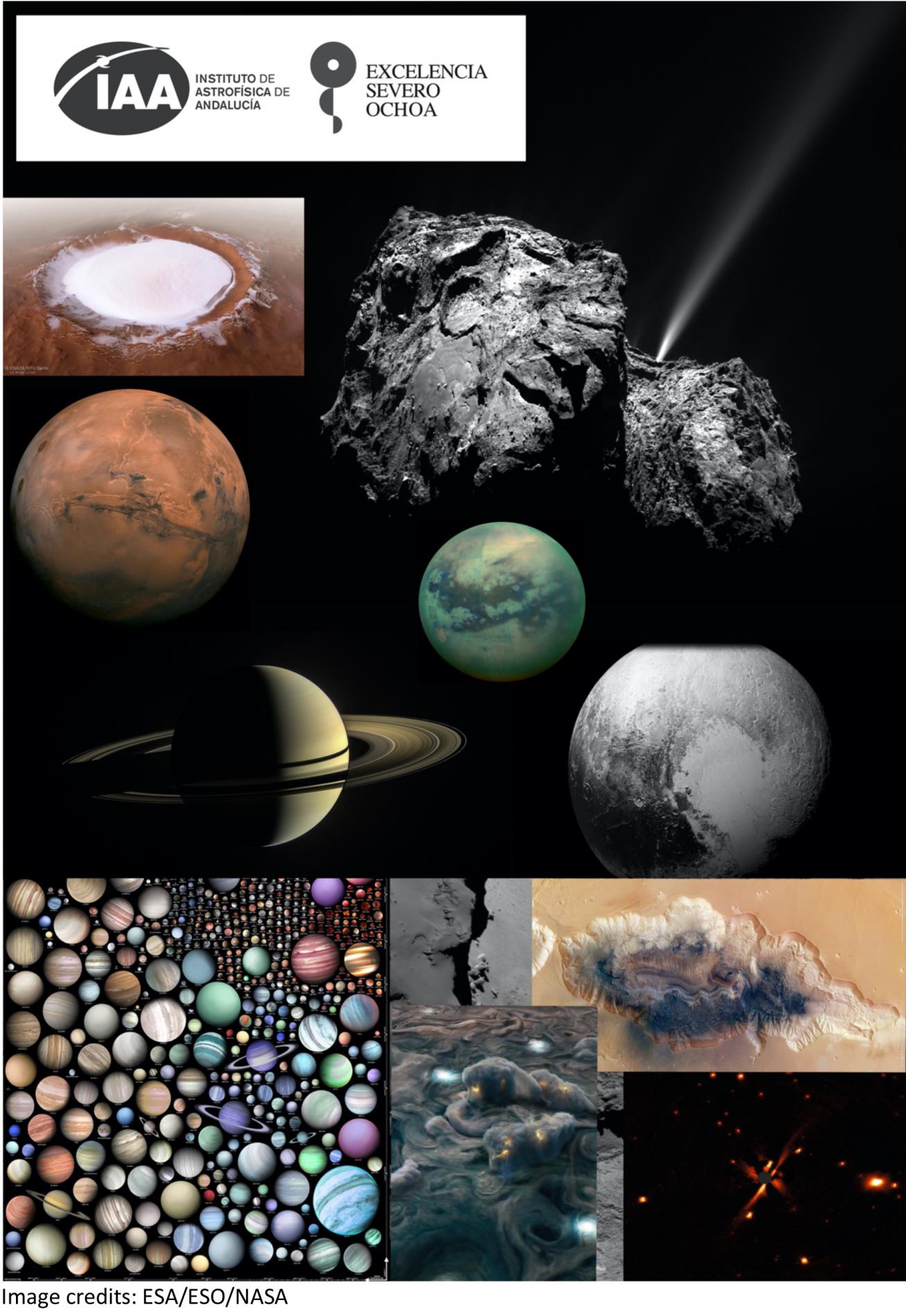The IAA Advanced School of Planetary Systems, open to the public
Organized within the framework of the Severo Ochoa-IAA project, it addresses our knowledge of exoplanetary systems from a broad and updated context
From 18 January to 1 February, and organised by the Institute of Astrophysics of Andalusia, took place the Advanced School on Planetary Systems, an activity within the framework of the Severo Ochoa-IAA project. A total of twenty-eight sessions, given by internationally renowned specialists, dissected one of the hottest areas in astrophysical research: planetary systems in their broadest context. The sessions, which have already had more than 23000 consultations by the 255 students enrolled in the school, are published today in open access in the Aula Virtual CSIC.
"The IAA has been a reference center in the exploration of the Solar System - including the Sun, planets, comets, asteroids and debris discs - both theoretically and observationally and through space missions. Given the advances in the discoveries of exoplanets and other planetary systems, I always wanted them all to be studied in context and in a broad way, including the Solar System. The idea of this school was born that way, and for this I contacted the most prestigious researchers who have dedicated their lives to studying our planetary system. To precisely have that broad and multidisciplinary vision, I looked for the counterpart in the field of exoplanets, protoplanetary disks and debris disks around other stars with logically younger but brilliant and internationally recognized researchers”, points out Luisa M. Lara, researcher at the Institute of Astrophysics of Andalusia that has organized the school.

The Advanced School of Planetary Systems was designed with the goal of providing a comprehensive understanding of planetary systems in a broad context, and the lessons covered topics related to protoplanetary discs, the host star, the different types of planets (rocky or giant), habitability, studies of their atmospheres (clouds and gas escapes), as well as minor bodies and debris discs in planetary systems.
The sessions, taught by internationally renowned scientists, are primarily aimed at master's and doctoral students and young postgraduates, as well as junior and senior researchers.
"Researchers who, either through their discoveries or their theoretical studies, have revolutionised the field of planets and their environments over the past three decades have been teachers at the school. It is a luxury to have brought their knowledge together in this virtual school, something of which I am very proud and satisfied. I would like to thank the support received at CSIC and the IAA, and especially the students -more than 250- and the teachers. All of them, with their daily responses since I began the challenge of organising the school, have given me energy for the result that is now being made public to the community", concludes Luisa M. Lara (IAA-CSIC).
Instituto de Astrofísica de Andalucía (IAA-CSIC)
Unidad de Divulgación y Comunicación
Silbia López de Lacalle - sll[arroba]iaa.es - 958230676
https://www.iaa.csic.es
https://divulgacion.iaa.csic.es

